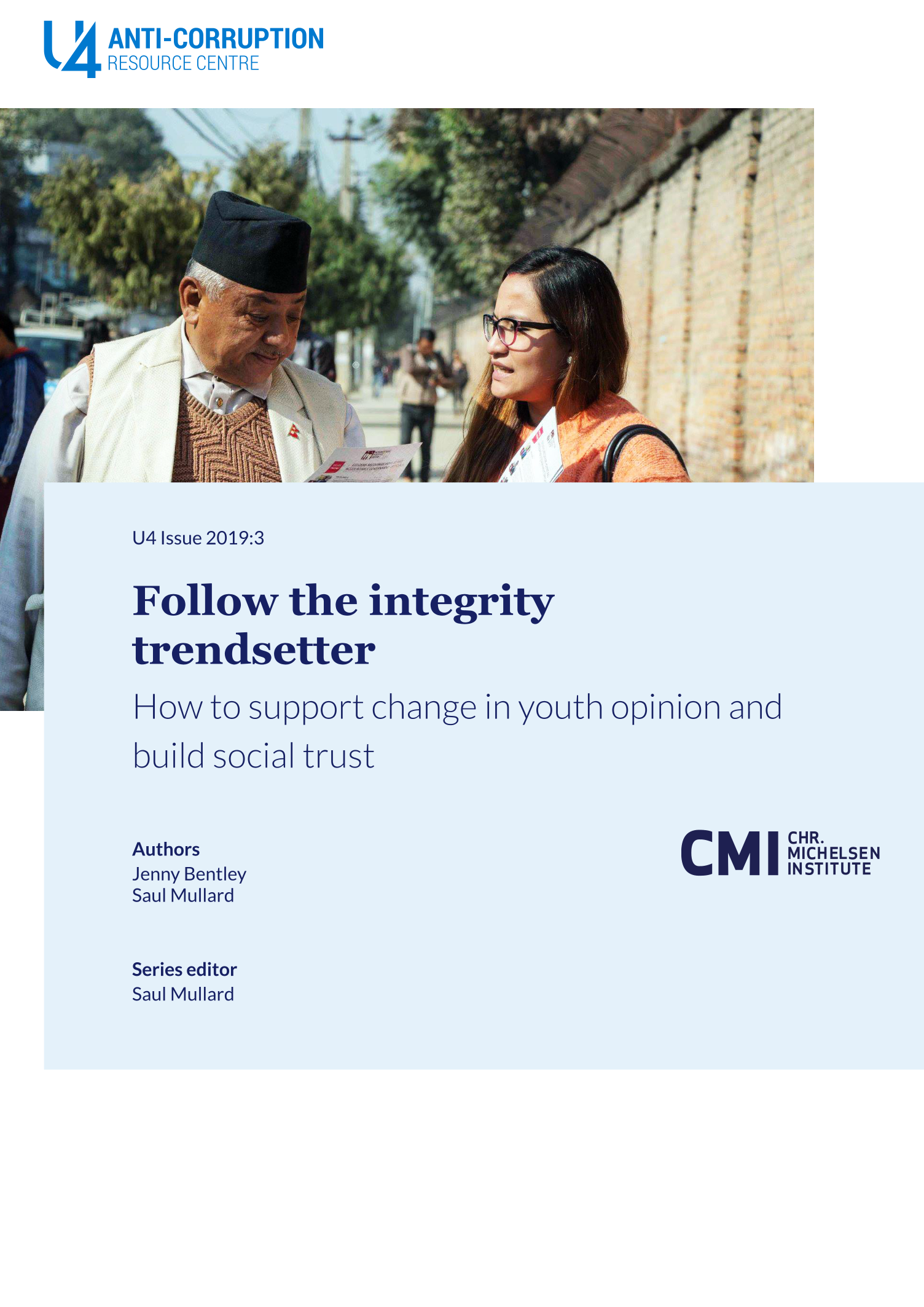Main points
- Trendsetters are individuals who abandon established norms, spearhead change, inspire others, and mobilise others to follow in their footsteps. They are an important element in changing norms that favour corruption.
- ‘Pluralistic ignorance’ describes a situation in which people follow a norm because they falsely believe that everyone else agrees with it. For example, individuals may reject corruption personally yet still assume, incorrectly, that most others in the society participate in it.
- In Nepal, youths who interact directly with integrity trendsetters abandon such beliefs. They come to trust that not all government officials are corrupt, and that there are public servants who work with integrity and deliver good services.
- Youths who interact with trendsetters often become more interested in working in public administration themselves. They believe that they can maintain personal integrity throughout their working life, regardless of career choice.
- Practitioners need to recognise that individual trendsetters function within wider social and professional networks. Including these networks in programmes can help trendsetters be more effective in building integrity. Programmes where youth co-learn and interact with trendsetters can strengthen networks that promote integrity in trendsetters’ places of work.
- Mentoring, fellowship, and integrity award programmes that include bureaucrats in training or newly graduated civil servants can help to build the next generation of trendsetters.
- Formalised peer exchange on positive experiences with public servants can help reduce pluralistic ignorance and increase trust.
- Historically rooted inequalities in caste, gender, and social status should be considered when identifying integrity trendsetters and selecting youth participants.

